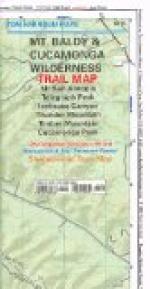“Good for you! To lose a hundred-and-fifty-dollar gun when we’re starting into the wilds would be maddening.”
Then, just because they were extremely healthy, happy, vigorous fellows, whose lungs had been drinking in pure, exhilarating ozone and fragrant odors of pine-balsam and were thereby expanded, they took a cheerful view of this duck under, and made the midnight forest echo, echo, and re-echo, with peals and gusts and shouts of laughter, while they struggled to right their canoe.
The merry jingles rang on in challenge and answer, repeating from both sides of the pond, until they reached at last the wooded slopes and mighty bowlders of Old Squaw Mountain, a peak whose “star-crowned head” could be imagined rather than discerned against the horizon, near the distant shore from which the hunters had started. Here echo ran riot. It seemed to their excited fancies as if the ghost of Old Squaw herself, the disappointed Indian mother who had, according to tradition, lived so long in loneliness upon this mountain, were joining in their mirth with haggish peals.
The canoe had turned bottom uppermost. On righting it they found that the jack-staff had been dislodged. The jack was floating gayly away over the ripples; its light, being in an air-tight case, was unquenched.
“Swim ashore with the rifle, Neal,” said Cyrus. “I’ll pick up the jack. Did you ever see anything so absurdly comical as it looks, dodging off on its own hook like a big, wandering eye?”
With his comrade’s help young Farrar succeeded in getting the gun across his back, slinging it round him by its leather shoulder-strap; then he struck out for the bank, having scarcely twenty yards to swim before he reached shallow water.
Now, for the first time to-night, the moon shone fully out from her veil of cloud, casting a flood of silver radiance, and showing him a scene in white and black, still and clear as a steel engraving, of a beauty so unimagined and grand that it seemed a little awful. It gave him a sudden respect for the unreclaimed, seldom-trodden region to which his craving for adventure had brought him.
The outline of Old Squaw Mountain could be plainly discerned, a dark, towering shape against the horizon. A few stars glinted like a diamond diadem above its brow. Down its sides and from the base stretched a sable mantle of forest, enwrapping Squaw Pond, of which the moon made a mirror.
“My! I think this would make the fellows in Manchester open their eyes a bit,” muttered Neal aloud. “Only one feels as if he ought to see some old Indian brave such as Cyrus tells about,—a Touch-the-Cloud, or Whistling Elk, or Spotted Tail, come gliding towards him out of the woods in his paint and feather toggery. Glad I didn’t visit Maine a hundred years ago, though, when there’d have been a chance of such a meeting.”
Still muttering, young Farrar kicked off his high rubber boots, and dragged off his coat. He proceeded to shake and wring the water from his upper garments, listening intently, and glancing half expectantly into the pitch-black shadows at the edges of the forest, as if he might hear the stealthy steps and see the savage form of the superseded red man emerge therefrom.




